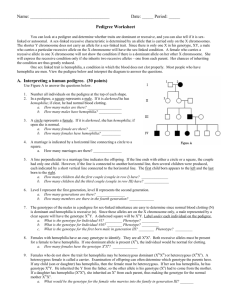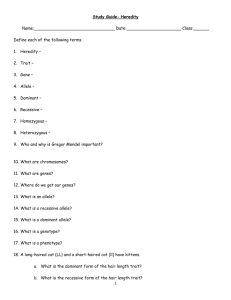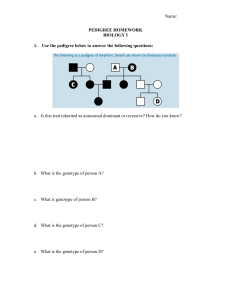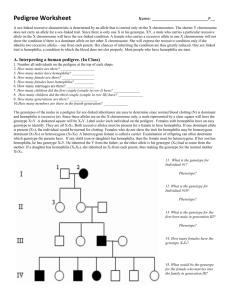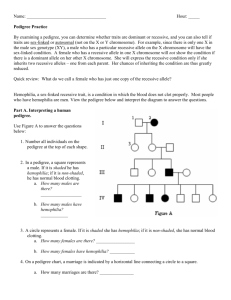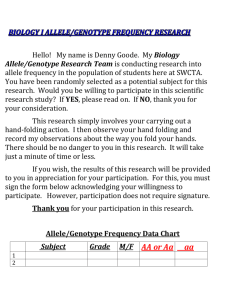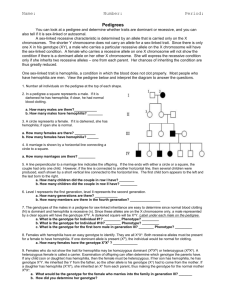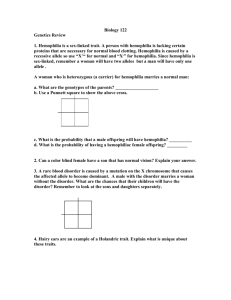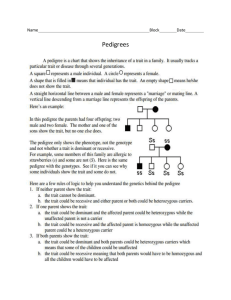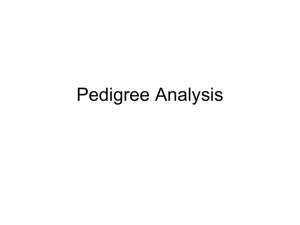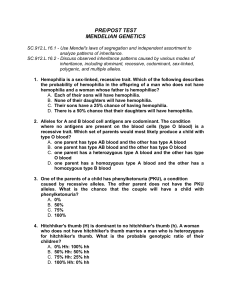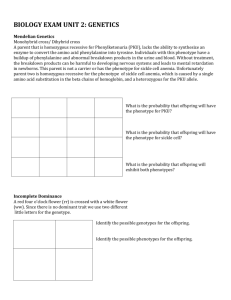Pedigree Chart WKS
advertisement
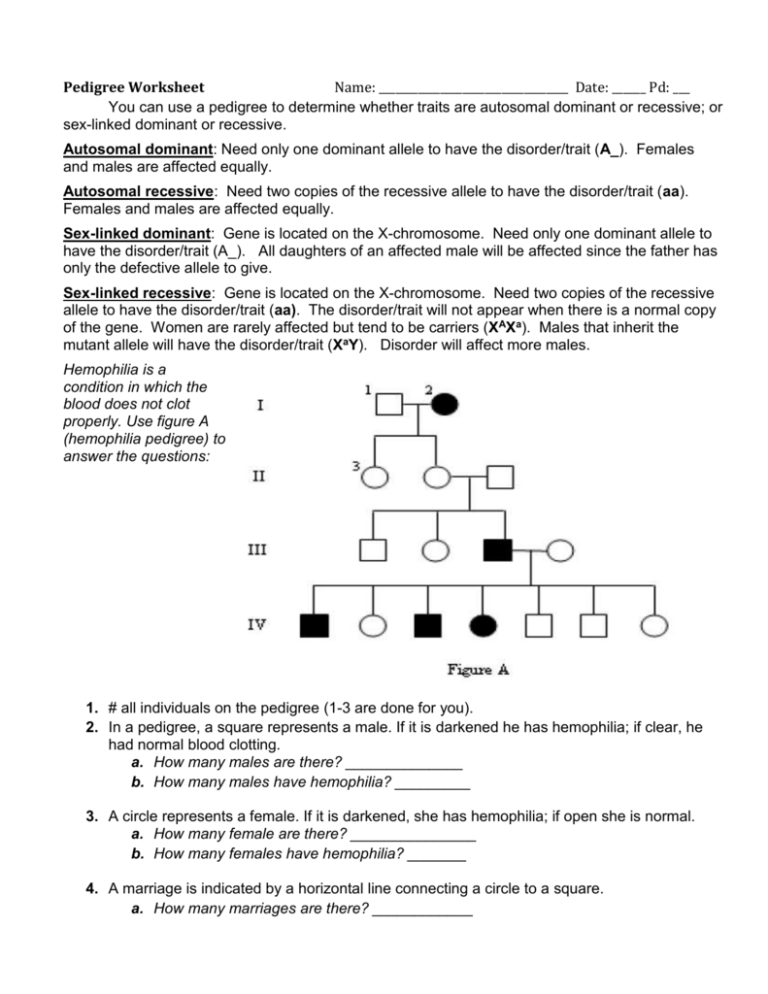
Pedigree Worksheet Name: __________________________________ Date: ______ Pd: ___ You can use a pedigree to determine whether traits are autosomal dominant or recessive; or sex-linked dominant or recessive. Autosomal dominant: Need only one dominant allele to have the disorder/trait (A_). Females and males are affected equally. Autosomal recessive: Need two copies of the recessive allele to have the disorder/trait (aa). Females and males are affected equally. Sex-linked dominant: Gene is located on the X-chromosome. Need only one dominant allele to have the disorder/trait (A_). All daughters of an affected male will be affected since the father has only the defective allele to give. Sex-linked recessive: Gene is located on the X-chromosome. Need two copies of the recessive allele to have the disorder/trait (aa). The disorder/trait will not appear when there is a normal copy of the gene. Women are rarely affected but tend to be carriers (XAXa). Males that inherit the mutant allele will have the disorder/trait (XaY). Disorder will affect more males. Hemophilia is a condition in which the blood does not clot properly. Use figure A (hemophilia pedigree) to answer the questions: 1. # all individuals on the pedigree (1-3 are done for you). 2. In a pedigree, a square represents a male. If it is darkened he has hemophilia; if clear, he had normal blood clotting. a. How many males are there? ______________ b. How many males have hemophilia? _________ 3. A circle represents a female. If it is darkened, she has hemophilia; if open she is normal. a. How many female are there? _______________ b. How many females have hemophilia? _______ 4. A marriage is indicated by a horizontal line connecting a circle to a square. a. How many marriages are there? ____________ 5. A line perpendicular to a marriage line indicates the offspring. If the line ends with either a circle or a square, the couple had only one child. However, if the line is connected to another horizontal line, then several children were produced. The first child born appears to the left and the last born to the right. a. How many children did the first couple (couple in row I) have? ______________ b. How many children did the third couple (couple in row III) have? _____________ 6. Level I represent the first generation; level II represents the second generation. a. How many generations are there? _______________ b. How many members are there in the fourth generation? _____________ 7. The genotypes of the males in this pedigree are easy to determine since normal blood clotting (N) is dominant and hemophilia is recessive (n). Since these alleles are on the X chromosome only, a male represented by a clear square will have the genotype XNY. A darkened square will be XnY. Label the genotype under each individual on the pedigree. 8. Females with hemophilia have an easy genotype to identify. They are all X nXn. Both recessive alleles must be present for a female to have hemophilia. If one dominant allele is present (XN), the individual would be normal. a. How many females have the genotype XnXn? _____________ 9. Females who do not show the trait for hemophilia may be homozygous dominant (XNXN) or heterozygous (XNXn). A heterozygous female is called a carrier. Examination of offspring can often determine which genotype the parents have. If any child (son or daughter) has hemophilia, then the female must be heterozygous. If her son has hemophilia, he has genotype XnY. He inherited the Y from the father, so the other allele is his genotype (Xn) had to come from the mother. If a daughter has hemophilia (XnXn), she inherited an Xn from each parent, thus making the genotype for the normal mother XNXn. a. What would be the genotype for the female who marries into the family in generation III? _______ 10. Draw a pedigree that represents Leah married to Aiden, with 2 sons and 1 daughter. Their son, Scott, married April and had Sutton (a boy) and Kendall (a girl). Their daughter, Karen, married Harry and had Eli (a son) and Tariq (a son). Please label the pedigree with the names of the people. 11. When working through a pedigree, the first thing you need to do is figure out which characteristic is dominant – the shaded one or the un-shaded one. Then you need to choose a letter (let’s use A) and begin assigning genotypes. Remember that recessive individuals are always homozygous, so assign their genotypes first. Then go back and look at all of the dominant individuals. For some, you will only be able to determine one allele of the genotype, so just write the one capital allele followed by a question mark (A?). a. Which characteristic is dominant? ____________________ b. Which characteristic is recessive? ____________________ c. Determine the genotypes of all individuals. You will have three “A?”. Write your Genotypes beneath each individual.
